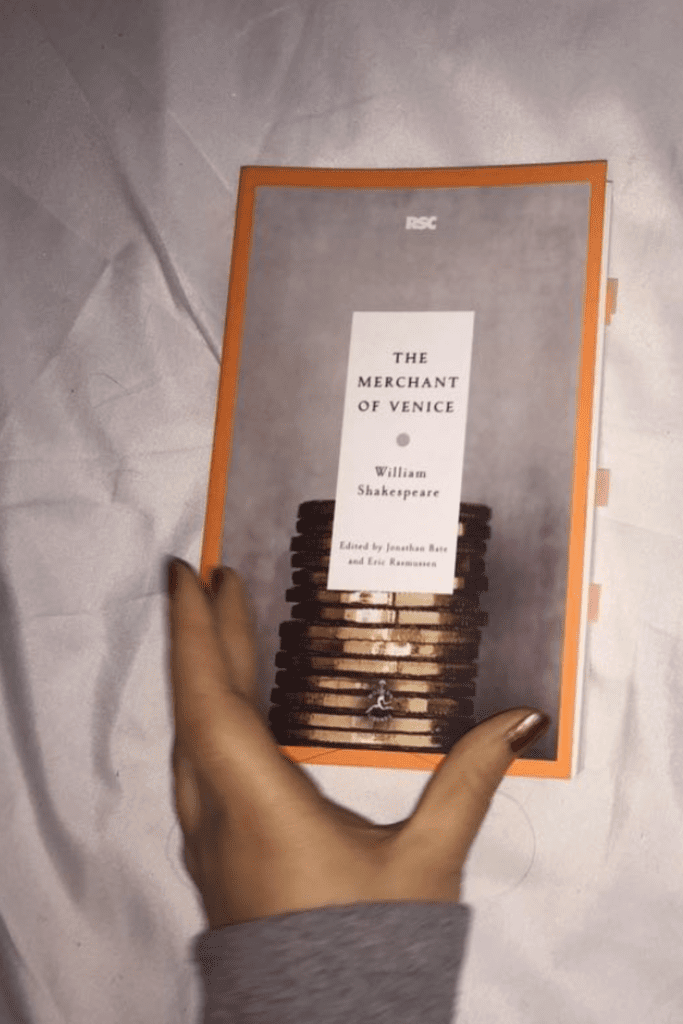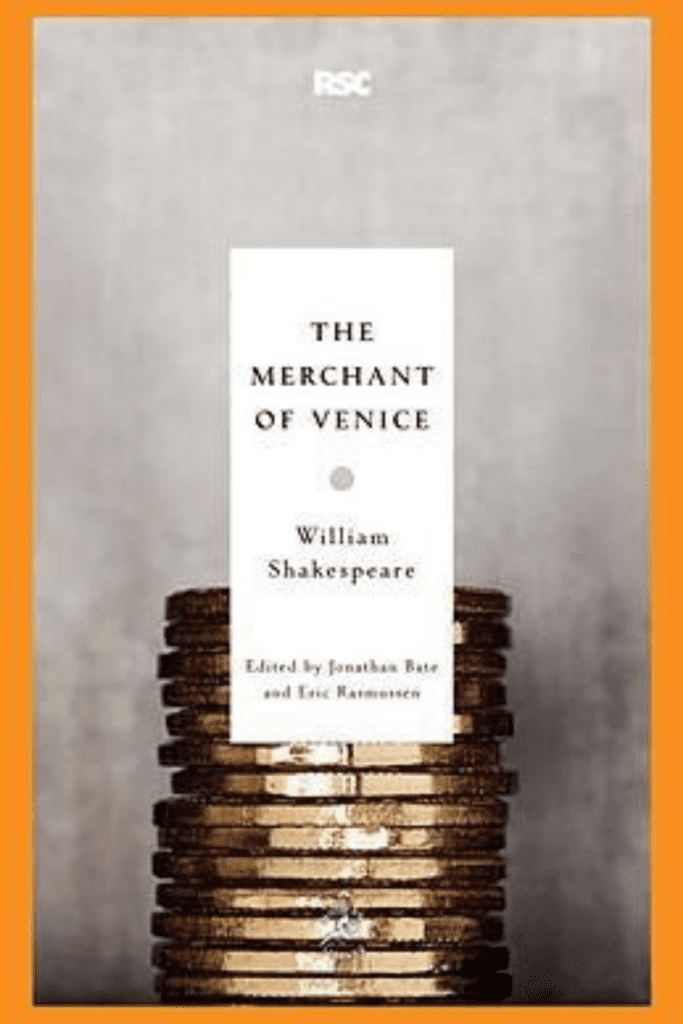This post may contain affiliate links, which means I’ll receive a commission if you purchase through my links, at no extra cost to you. Please read my full disclosure for more information.
If you like drama and a revenge plot, “The Merchant of Venice” by William Shakespeare is a great play to read!

- Date finished: January 29th, 2017
- Pages: 224
- Format: Paperback
- Form: Play
- Language read in: English
- Series: Standalone
- Genre: Classics | Play | Drama
Buy “The Merchant of Venice“
As the citizens of Venice compete for advantageous marriages, wealth, and status, a moneylender is intent on a deadly revenge. Mistrust and resentment thrive in Shakespeare’s dark comedy “The Merchant of Venice.”

I don’t know if my excitement to read this play had any impact on my reading of it… but even if it did… expectations usually lead to disappointments with rarely some exceptions of success. (Such is the case with The Merchant of Venice.)
The play starts and I already relate and sympathize with one of its main characters: Antonio. I highlighted some quotes about his indescribable sadness. He’s a great merchant and has a good nature with loaning money to honest men (and friends) in need without interest. Although he is a morally virtuous Christian there’s still a flaw in his view of Jewish people, which brings in themes of racial and religious injustices. Sure, his nemesis, a Jew named Shylock has no mercy and no good moral virtue. (FOR ME, NOT BECAUSE HE IS JEWISH BUT BECAUSE HE IS AN INTEREST RATE COLLECTOR / MONEYLENDER AND WANTS TO SHED ANTONIO’S INNOCENT BLOOD! for a deed he can and will be able to pay back in double anyways.)
I personally think that the plot of this play is more complex than Shakespeare’s other plays, which is always a plus. There were a lot of parallels and oppositions (seen in most of his plays but whatever) between the two female leads: Portia and Jessica. They’re both heirs from a rich father, seeking for a worthy husband to share their wealth with. One steals from her father’s casket and the other obeys the rules of her deceased father for marrying a man that opens the right casket of the three presented.
In this play, money and love seem to go hand in hand. On the one hand, there’s a state bond concerning a money lending contract between the merchant Antonio and the moneylender Shylock. On the other hand, there’s a marital bond formed through a ring between Bassanio and Portia, and her servant Nerissa with Gratiano. I’d also like to suggest a third bond with the friendship and sacrifices between Antonio and Bassanio.
Back to the females. Women in Shakespeare are, often than not, silenced or wrathful. In this case, both female characters were clever, strong, and deceptive. Jessica, for escaping her horrible father to marry the man she loves and Portia for disguising herself and conducting a genius plan to save her the life of her husband’s friend (Antonio) while making Jessica’s father have a taste of his own medicine (Shylock).
The resolution of the play was lacking but that’s a trend in Shakespeare’s plays. We are left with three happy couples but Antonio is still alone and single but is also saved and happy(?) Although Shylock deserved what he got, it does not change the fact that he did not deserve to convert his Jewish faith to a Christian one. Again, this is the most unfair and unresolved part of the play…
Overall, a great and enticing read with important themes and characters raised up for discussion in our modern-day world.
“Those we love never truly leave us, Harry. There are things that death cannot touch.”
“In every shining moment of happiness is that drop of poison: the knowledge that pain will come again. Be honest to those you love, show your pain. To suffer is as human as to breathe.”
⭐⭐⭐⭐






Leave a Reply